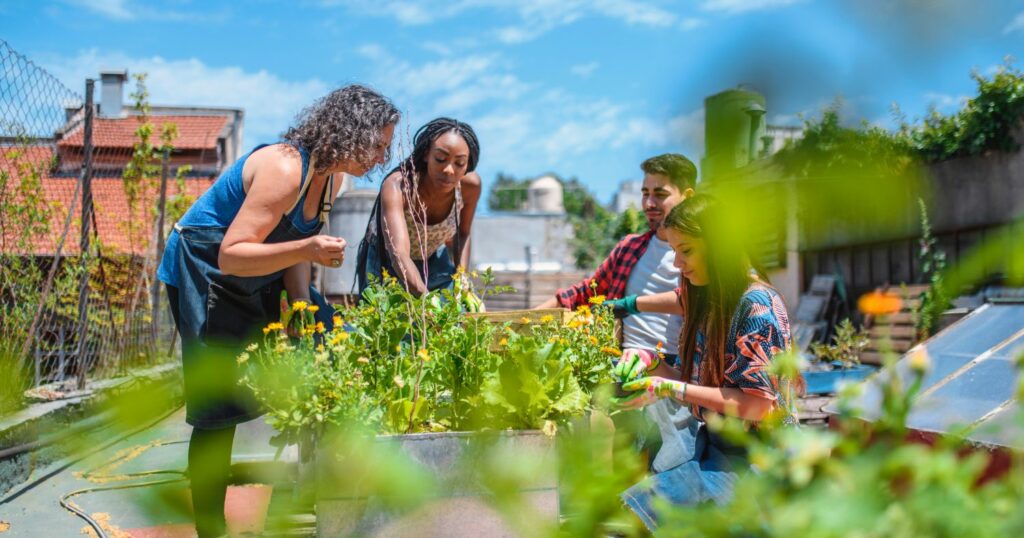Hip-hop, a genre deeply rooted in social justice, community pride, and the fight against inequality, has evolved to tackle a pressing issue in urban areas: food deserts. These areas, plagued by limited access to fresh and healthy food, reflect broader systemic problems that hip-hop has always addressed through its music and culture.
Today, hip-hop artists are transforming vacant lots and public spaces into thriving community gardens, bridging the gap between inaccessible grocery stores and local convenience shops filled with unhealthy options. This movement not only provides fresh produce to underserved communities but also reinforces the core values of hip-hop, proving that the fight for social justice extends beyond the stage and into the streets.
From the Roots
The foundation of hip-hop is social justice, community pride, and fighting inequality. It’s no wonder that taking a stand against the food deserts that tend to be found in urban areas has become another pillar.
Several factors have affected urban communities’ access to food, from poor transportation solutions, lower incomes, processed or cheap selections at the stores within walking distance, and no access to healthy, fresh options. All of these factors fit within the tenets of hip-hop.
To the Streets
Hip-hop has developed a reputation over the years of focusing on money and violence. This directly correlates to the roots of hip-hop in many ways, but many are changing the fight. Instead of violence, gardens are springing up in vacant lots, public parks, and community green spaces.
These gardens serve to close the gap between far-away grocery stores and the unhealthy foods in local convenience shops. Fresh food is no longer several bus stops away. Instead, the whole community can access fresh vegetables grown with care. What better way to fight for social justice?
Hip-Hop’s Flourishing Artists
Of course, to have a hip-hop urban garden movement, there must be hip-hop artists involved. Some of the names to watch include:
- Letef Vita, an award-winning international recording artist, organic gardener, and vegan chef
- Heavy Crownz, a Chicago rapper with involvement in community gardens
- DJ Cavem, and eco hip-hop pioneer
- Keith Cross, an urban farming rapper
Their willingness to lend voice and music to the cause has inspired a whole generation, with younger hip-hop artists and rappers already lining up to join the fight.
Non-profit Appetite for Change released Grow Food, featuring kids from the North Side of Minneapolis. Their message is the same as those before: the violence on the streets won’t be the reason most in these neighborhoods die. It’s up to everyone in the community to give back to effect change.
Make no mistake: while violence isn’t part of the fight for food equality, the struggle is just as hard. But when everyone pitches in, when everyone works to grow the food needed in these food deserts that exist in the most densely populated areas of the country, the job becomes easier for all involved.
If you’d like to get started with an urban garden—on your nearest street corner or even on your own rooftop—the USDA provides several resources that may help. The most important thing, however, is to just start. Start your gardening journey today, and grab your free seed kit.
Beats, Beds & Browns is an Ag Advocacy Brand focused on educating people on how to eat healthy, sustainably, and inexpensively. You can listen to live interviews including farmers, rappers, activists and more via our video podcast on YouTube (@beatsbedsbrowns) and/or your streaming venue of choice. Follow our progress on your social media of choice at #100kin10yrs or directly via @beatsbedsbrowns

